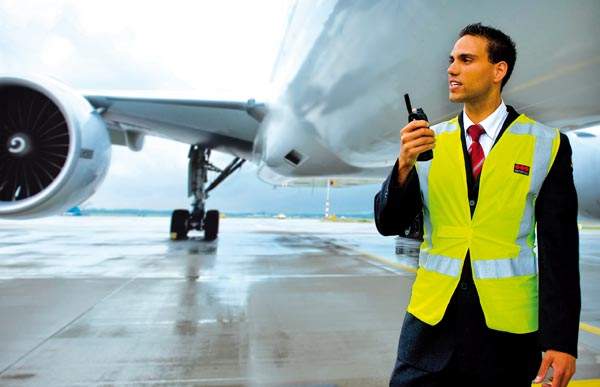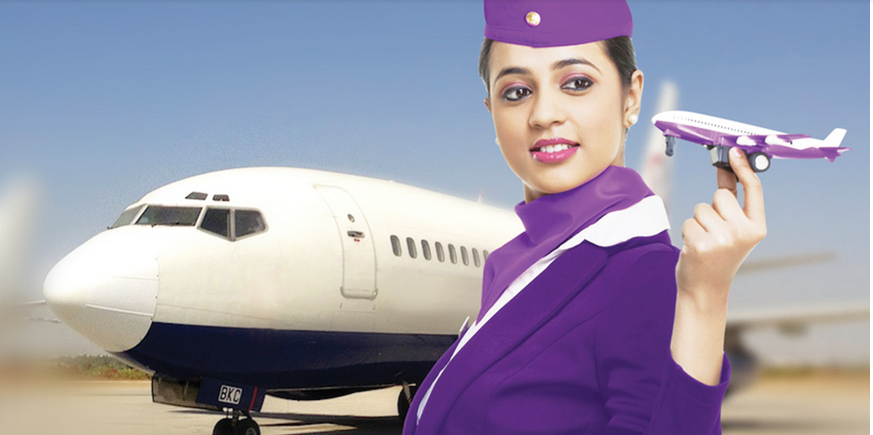Discover Aviation College in Madurai!! Hey there, future aviators! Ready to soar to new heights in your BBA in Aviation course at Anna College, Madurai? Strap in, because today we’re diving into the crucial world of mindset. Picture this: you’re sitting in the cockpit, ready to take off on your next flight. The engines hum, the runway beckons, but what’s the most important instrument guiding you through those clouds? It’s not the altimeter or the airspeed indicator—it’s your mindset!
Setting the Stage: Understanding the Power of Mindset
First things first, let’s clear the air about mindset. It’s not just about positive thinking or plastering a smile on your face, though those things certainly help. Your mindset is like the autopilot of your brain—it shapes your thoughts, beliefs, and attitudes, ultimately influencing your actions and outcomes. In the world of aviation, where split-second decisions can mean the difference between smooth sailing and turbulence, cultivating the right mindset is absolutely essential.
Clear Skies Ahead: The Benefits of a Positive Attitude
Now, you might be wondering, what’s the big deal about having a positive attitude, especially in aviation training? Well, buckle up, because the benefits are about to take you on a joyride. A positive mindset not only boosts your confidence and resilience but also enhances your ability to learn and adapt. When you approach challenges with optimism and a can-do attitude, you’re more likely to overcome obstacles, stay focused, and ultimately reach your destination.
Navigating Cloud Nine: Tips for Cultivating Positivity
So, how do you cultivate a positive mindset, especially when facing the rigors of aviation training? Fear not, fellow aviators, for I’ve got a flight plan mapped out just for you.
- Stay Grounded in Gratitude: Take a moment each day to appreciate the journey you’re on and the opportunities ahead. Whether it’s the thrill of your first solo flight or the camaraderie of your classmates, there’s always something to be thankful for.
- Visualize Your Success: Close your eyes and imagine yourself confidently navigating the skies, executing flawless maneuvers, and achieving your aviation goals. Visualization isn’t just wishful thinking—it’s a powerful tool for building confidence and mental preparedness.
- Embrace Challenges as Opportunities: Instead of viewing setbacks as roadblocks, reframe them as opportunities for growth and learning. Every missed approach or failed exam is a chance to refine your skills, strengthen your resolve, and emerge even stronger.
- Surround Yourself with Positive Vibes: They say birds of a feather flock together, and the same holds true for mindset. Surround yourself with supportive peers, mentors, and instructors who uplift and inspire you. Their positive energy will fuel your own journey to success.
- Practice Self-Compassion: Cut yourself some slack, fellow aviators. You’re human, after all, and perfection is a flight path few ever achieve. Be kind to yourself in moments of doubt or frustration, and remember that every stumble is just a stepping stone on the path to greatness.

Communication Skills: Essential for Safe and Efficient Flying | Aviation College in Madurai
Navigating the Skies: Mastering Communication Skills for Aviation
Hey there, future pilots and air traffic controllers! Ready to take your communication skills to new heights as you pursue your BBA in Aviation at Anna College, Madurai? Strap in, because today we’re diving into why effective communication is the secret ingredient to safe and efficient flying.
Clear Skies Ahead: The Importance of Communication in Aviation
Picture this: you’re cruising at 30,000 feet, the sun setting on the horizon, when suddenly, you encounter unexpected turbulence. In moments like these, clear and concise communication isn’t just a nicety—it’s a necessity. Whether you’re coordinating with air traffic control, communicating with your fellow crew members, or relaying critical information to passengers, the ability to convey your message effectively can mean the difference between smooth sailing and a bumpy ride.
In the Cockpit: Communication Between Pilots
First things first, let’s talk about communication inside the cockpit. As a pilot, you’re part of a dynamic duo—or trio, depending on the size of your aircraft—and effective communication with your co-pilots is essential for safe and efficient flying. From pre-flight checklists to in-flight emergencies, clear communication ensures that everyone is on the same page and ready to spring into action when needed.
Talking to Tower: Communication with Air Traffic Control
Next up, let’s tune in to the airwaves and talk about communication with air traffic control (ATC). When you’re flying through busy airspace or landing at a bustling airport like Madurai, you’ll rely on ATC to keep you on course and out of harm’s way. Clear, concise, and accurate communication with ATC is crucial for navigating complex airspace, avoiding mid-air collisions, and ensuring smooth traffic flow.
Cabin Crew: Communication with Passengers
Now, let’s shift our focus to the cabin and talk about communication with passengers. As the friendly faces of the friendly skies, cabin crew members play a vital role in ensuring the comfort, safety, and well-being of passengers onboard. From providing pre-flight safety briefings to offering assistance during turbulence, effective communication helps to reassure passengers, address concerns, and maintain a calm and orderly cabin environment.
Emergency Procedures: Communication Under Pressure
Last but certainly not least, let’s talk about communication during emergencies. When the unexpected happens at 35,000 feet, clear and decisive communication can mean the difference between a successful outcome and disaster. Whether it’s a medical emergency, engine failure, or onboard security threat, effective communication protocols and procedures ensure that everyone knows their role, stays calm under pressure, and works together to resolve the situation safely.

Navigating the Communication Maze: Tips for Success
Now that we’ve covered the importance of communication in aviation, let’s wrap things up with some practical tips for honing your communication skills.
- Listen Up: Effective communication isn’t just about talking—it’s also about listening. Pay attention to what others are saying, ask clarifying questions if needed, and ensure that you fully understand the message before responding.
- Be Clear and Concise: In the fast-paced world of aviation, brevity is key. Keep your messages clear, concise, and to the point, avoiding unnecessary jargon or ambiguity that could lead to misunderstandings.
- Practice, Practice, Practice: Like any skill, communication improves with practice. Take advantage of simulation exercises, role-playing scenarios, and real-world experiences to hone your communication skills in a safe and supportive environment.
- Stay Calm Under Pressure: In high-stress situations, it’s easy for communication to break down. Stay calm, cool, and collected, and remember to communicate calmly and confidently, even when the pressure is on.
- Seek Feedback: Finally, don’t be afraid to seek feedback from your peers, instructors, and mentors. Constructive criticism can help you identify areas for improvement and fine-tune your communication skills for maximum impact.
Time Management: Balancing Studies and Flight Training
Flying High: Mastering Time Management in Aviation Studies
Hey there, future aviators! Ready to juggle textbooks and flight manuals like a pro as you pursue your BBA in Aviation at Anna College, Madurai? Buckle up, because today we’re diving into the wild world of time management. Strap in and let’s soar through the skies of effective study habits and flight training schedules.
Navigating the Flight Plan: Understanding the Importance of Time Management
Picture this: you’ve got a mountain of textbooks to conquer, flight simulations to ace, and deadlines looming on the horizon. With so much on your plate, effective time management isn’t just a luxury—it’s a lifeline. Balancing your studies and flight training requires careful planning, prioritization, and a sprinkle of magic to make it all work.
Setting Course: Creating a Time Management Flight Plan
First things first, let’s talk about creating a flight plan for your time management journey. Just like plotting a course for a cross-country flight, effective time management starts with setting clear goals and priorities. Take a moment to identify your academic and aviation objectives, then break them down into manageable tasks and milestones.
Clear Skies Ahead: Tips for Balancing Studies and Flight Training
Now that we’ve set our course, let’s dive into some practical tips for balancing your studies and flight training like a seasoned pro.
- Chart Your Schedule: Grab your favorite planner or digital calendar and start blocking out dedicated study and flight training sessions. Treat these appointments like you would a flight itinerary—stick to them religiously and avoid the temptation to procrastinate.
- Prioritize Your Tasks: Not all tasks are created equal, and neither are all study sessions. Prioritize your assignments and flight training activities based on urgency, importance, and your own strengths and weaknesses. Focus on tackling high-priority tasks first, then work your way down the list.
- Stay Flexible: While planning is essential, so is flexibility. Life happens, weather changes, and unexpected turbulence can throw your schedule off course. Stay agile and be prepared to adjust your plans as needed, whether it’s swapping study sessions, rescheduling flights, or seeking help when you need it.
- Avoid Time Sinks: We’ve all got those pesky time sinks that suck away our precious hours without us even realizing it. Whether it’s endless scrolling on social media, binge-watching the latest Netflix series, or getting lost in a YouTube rabbit hole, identify your time-wasting habits and take steps to minimize them.
- Take Care of Yourself: Last but certainly not least, don’t forget to take care of yourself amidst the chaos of aviation studies and flight training. Get plenty of rest, stay hydrated, eat nutritious foods, and carve out time for relaxation and recreation. A healthy body and mind are essential for peak performance in the cockpit and the classroom.
Flying Through Turbulence: Building Resilience in Aviation Studies
Hey there, future aviators! Ready to weather the storms and soar to new heights in your BBA in Aviation journey at Anna College, Madurai? Buckle up, because today we’re diving into the world of resilience—how to bounce back from setbacks and navigate challenges with grace and grit.
Navigating the Clouds: Understanding the Importance of Resilience
Picture this: you’re cruising through clear skies, the wind in your hair and the sun on your wings, when suddenly, you encounter unexpected turbulence. Whether it’s a failed exam, a challenging flight maneuver, or a setback in your personal life, resilience is the secret sauce that helps you stay steady in the face of adversity.
Flight Plan: Strategies for Building Resilience
First things first, let’s talk about building your resilience toolkit. Just like pre-flight checklists and emergency procedures, resilience is a skill that can be cultivated and strengthened over time. Here are some practical strategies to help you navigate the ups and downs of aviation studies with confidence and composure.
Staying Grounded: Mindfulness and Self-Reflection
When the skies get rough, it’s easy to get swept away by negative emotions and self-doubt. That’s where mindfulness and self-reflection come in. Take a moment to pause, breathe, and ground yourself in the present moment. Reflect on your experiences, acknowledge your emotions, and remind yourself of your strengths and capabilities.
Navigating Turbulence: Developing Problem-Solving Skills
In the world of aviation, challenges are par for the course. Whether it’s a mechanical issue, a weather delay, or a miscommunication with air traffic control, pilots must be adept problem-solvers. Similarly, in your aviation studies, developing strong problem-solving skills is essential for overcoming obstacles and finding creative solutions to complex problems.
Clear Skies Ahead: Cultivating a Positive Mindset
When the going gets tough, a positive mindset can make all the difference. Instead of dwelling on setbacks and dwelling on what went wrong, focus on what you can control and how you can move forward. Adopt a growth mindset, embrace challenges as opportunities for growth, and maintain a sense of optimism and resilience in the face of adversity.
Building a Support Network: Lean on Your Fellow Aviators
Last but certainly not least, don’t forget to lean on your fellow aviators for support. Whether it’s your classmates, instructors, or mentors, surrounding yourself with a strong support network can provide invaluable encouragement, guidance, and perspective during challenging times. Don’t be afraid to reach out, ask for help, and offer support in return.
Ready for Takeoff: Embracing Resilience in Your Aviation Journey
As you embark on your BBA in Aviation journey at Anna College, Madurai, remember this: setbacks and challenges are just part of the adventure. With the right mindset, skills, and support, you can navigate any storm and emerge stronger, wiser, and more resilient than ever before. So buckle up, stay steady, and get ready to soar to new heights in the friendly skies of your aviation career. The runway beckons, and the future looks brighter than ever. Let’s fly!
FAQs
1. What is a BBA in Aviation Management?
A BBA in Aviation Management is a bachelor’s degree program that combines business administration with specialized training in aviation. It covers topics like airport operations, aviation safety, air traffic control, and aviation law, alongside core business subjects such as management, marketing, and finance.
2. What skills will I learn in the BBA Aviation program at Anna College?
You will learn a variety of skills, including critical thinking, problem-solving, effective communication, and leadership. Specific to aviation, you’ll gain insights into flight operations, aviation safety, airline management, and regulatory frameworks.
3. How long does it take to complete the BBA in Aviation at Anna College?
The BBA in Aviation typically takes three to four years to complete, depending on the structure of the program and whether any prerequisites are required.
4. Are there any entrance requirements for the BBA in Aviation at Anna College?
Most BBA Aviation programs require a high school diploma or equivalent. Some might also require specific grades in subjects related to mathematics and science, or passing an entrance exam. It’s best to check directly with Anna College for specific admission requirements.
5. What career opportunities are available after completing a BBA in Aviation Management?
Graduates can pursue various roles within the aviation industry, including positions as airport managers, airline managers, sales and marketing professionals in aviation, logistics and operations coordinators, and more.
6. How much does it cost to study BBA in Aviation at Anna College?
Tuition costs vary widely depending on numerous factors. Prospective students should contact the admissions department of Anna College directly for the most accurate and up-to-date information regarding tuition and fees.
7. Does Anna College offer any scholarships or financial aid for the BBA in Aviation program?
Many colleges offer scholarships or financial aid to eligible students. Contact the financial aid office of Anna College to learn about available opportunities and eligibility criteria.
8. What practical training opportunities does the BBA Aviation program at Anna College provide?
The program typically includes practical training sessions, such as flight simulations, internships at airports or airlines, and other hands-on training to equip students with real-world skills.
9. Can I pursue further education after completing a BBA in Aviation Management?
Yes, after completing a BBA in Aviation, you can pursue further education such as an MBA in Aviation Management or other specialized postgraduate courses in related fields.
10. How does the BBA Aviation program at Anna College prepare students for the challenges of the aviation industry?
The program combines theoretical studies with practical experiences, providing students with a deep understanding of the aviation industry’s dynamics. It focuses on developing essential skills such as decision-making under pressure, effective communication, and strategic planning, which are crucial for navigating the complexities of the aviation industry.




